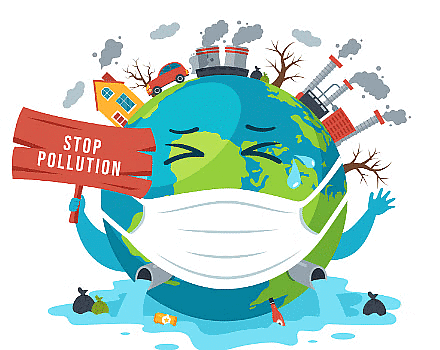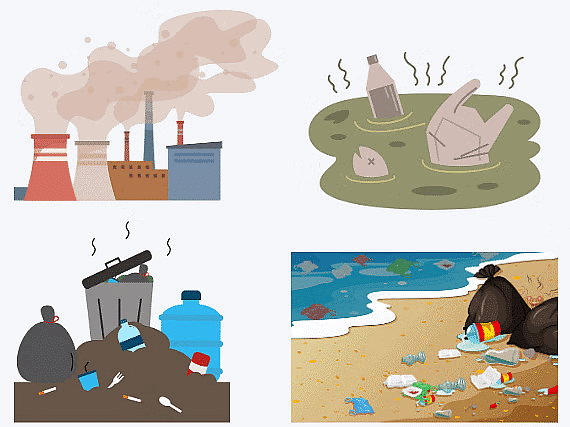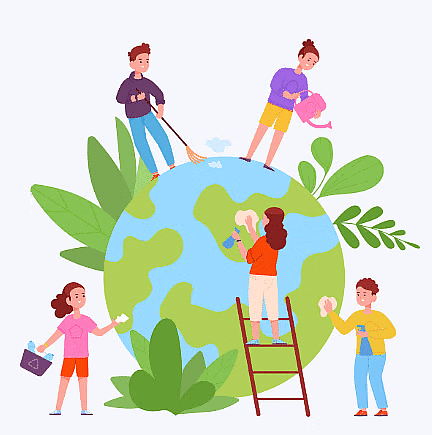Essay on Pollution | Essays for Class 4 PDF Download
Pollution is when harmful substances are released into the environment, causing damage to the air, water, or land. It's a significant problem facing our planet today. Pollution can come from many sources, including factories, cars, and even everyday activities like burning trash or using certain chemicals. Air pollution happens when harmful gases or particles are released into the air. This can happen from vehicle exhaust, industrial emissions, or even smoke from wildfires. Breathing in polluted air can cause respiratory problems and other health issues.
Air pollution happens when harmful gases or particles are released into the air. This can happen from vehicle exhaust, industrial emissions, or even smoke from wildfires. Breathing in polluted air can cause respiratory problems and other health issues.
Water pollution occurs when harmful substances like chemicals, sewage, or trash contaminate rivers, lakes, or oceans. This pollution can harm aquatic life and make water unsafe for drinking or swimming. It also affects the entire ecosystem.
Land pollution is when the soil or land becomes contaminated with waste, chemicals, or other harmful substances. This can happen from improper disposal of garbage, industrial waste, or agricultural runoff. Land pollution can damage ecosystems and make land unsuitable for farming or other uses.
Pollution harms not only the environment but also human health and well-being. It can lead to respiratory diseases, cancer, and other serious health problems. Pollution also contributes to climate change, which has far-reaching effects on weather patterns, ecosystems, and communities worldwide.

To combat pollution, we need to take action at both individual and collective levels. This includes reducing our use of fossil fuels, recycling and properly disposing of waste, supporting clean energy sources, and advocating for policies that protect the environment. The best way to control pollution is by following the motto- Reuse, Reduce and Recycle. Planting more trees and using renewable resources of energy can also help us. It requires a collective effort to reduce and stop pollution.
By working together, we can help reduce pollution and create a healthier planet for future generations.
















